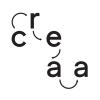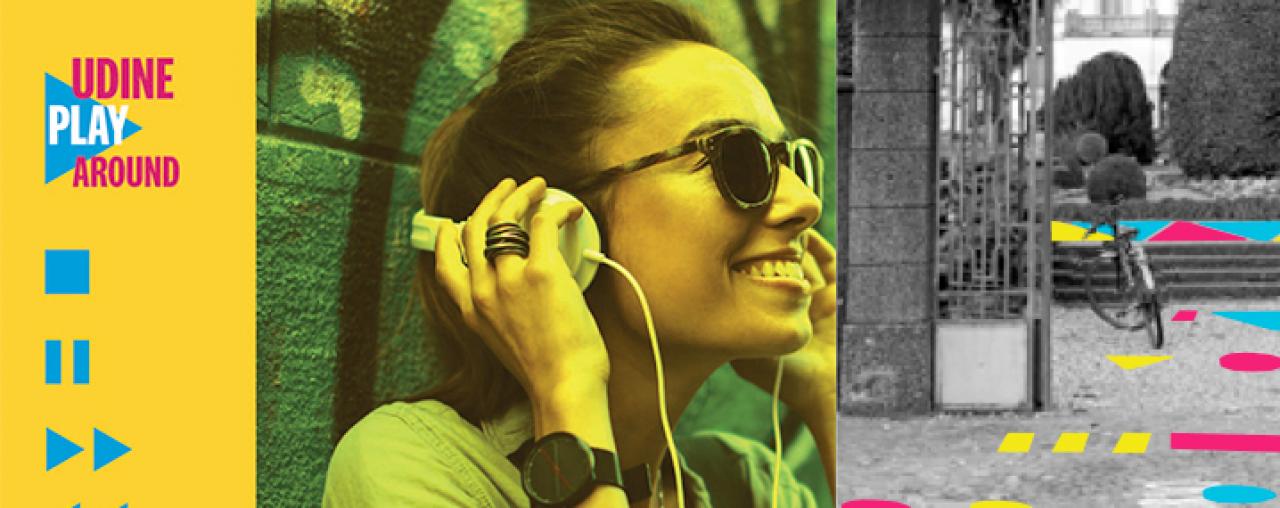
by Marco Pollastri and Riccardo Mercuri (Centro Antartide, Bologna, Italy)
Playing is an important activity in everybody’s life, from the very early years to the very last.
Playing brings peacefulness, growth, development and can become a community exercise that helps to understand, express and transform the world around us.
To play means to be social, even if in this last year this important part of the process forcefully moved toward the digital world due to the pandemic, losing the fundamental moment of the meeting.
The experience of “Udine Plays around” was born as a part of the European Project “Playful Paradigm” with the goal to fulfill what has just been stated before, but also as a tool to read and analyze in a participated way the territory and let citizen to have a say in proposing changes in their living context. All this was always carried on with a playful attitude.
The experimental area chosen was Borgo Stazione, an area located between the Railway Station and the City center. This part of the city underwent in those last years a deep transformation, characterized above all by the growth of residents with foreign origins. Because of this process, the neighbor is looking for a new identity that has to cope on one side with the problems of petty crimes (usual in the suburban areas), and on the other with a strong architectural heritage.
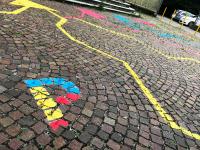

The project focused on the public areas of this neighbor in order to intervene on their social and relational aspects.
The process that led to the construction of the play started with a first stage of listening, and had to adapt different research methods to the restrictions imposed by the pandemic, from the strolls around the neighbor to the interviews made to people of different age ranges.
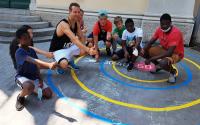

Thanks to a model developed in a previous project, we proceed with a comparative analysis between the perceived data and the real ones concerning the quality of public spaces: from the equipment to the natural context, from safety to infrastructures. In this way, it was possible to better understand the priorities to focus on with the participation of citizens of all ages and underline not only the critical points, but also the potential ones.
An interesting aspect that emerged at this stage involved the consideration that people have about the lack of public spaces destined to play and relax (especially for the youngest) but in the meantime also about the availability of areas that could be used for this purpose.
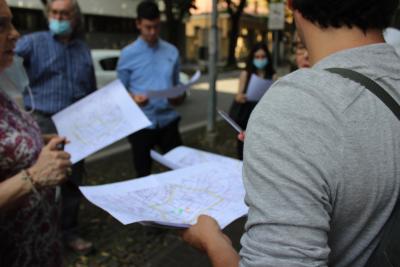
This experience has been useful for the overall design of “Udine Plays Around”, that developed following 2 directions in order to meet the widest possible audience.
The first one is digital, with the use 2 apps already existing (Echoes and Wallame), and the second one is analogic, to be lived directly on the territory.
Because it was necessary to adapt the research’s methods to the anti-pandemic rules, in this first stage we privileged the digital approach or the individual fruitions which allowed anyway to share ideas between the participants.
Play combines the concept of playmaking with the concept of placemaking, pushing people to better live and understand the territory in which they live. It also helps them to imagine, discover and signal in a creative way the spaces that compose the same territory, with the help of the digital and analogic tools provided.
More specifically, the digital function enables two different interpretation keys.
The first one is based on pre-registered audio tracks reporting interviews with people living in the territory (Echoes); the second one let people leave messages, drawings or images in a virtual way on the walls or on other significant spaces around the territory (Wallace).
Some Totem has been placed along the paths involved in the project, so that citizens could leave any kind of opinion, even those in which they imagine ways to transform those spaces in the future; this has made the Play even more accessible to everybody.
![]()
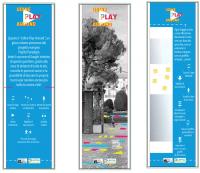
The experience of the play can be performed also in groups, in order to stimulate exchanges and relationships between citizens, in this way fulfilling the final goal of this project.
A specific monitoring activity will be arranged during and at the end of the experimentation in order to improve and implement the proposal.
The information reached will be an important and interesting data set for several Municipality Sectors in order to make the interventions planned in that area more effective and participatory.
Marco Pollastri
and Riccardo Mercuri
- Centro Antartide, Bologna, Italy

